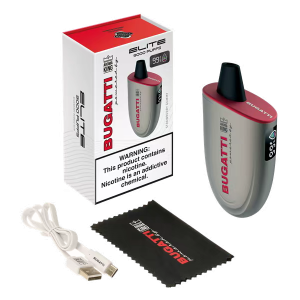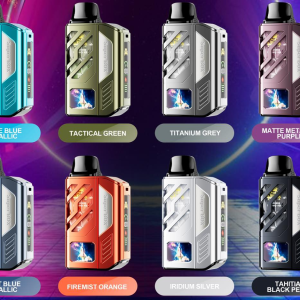North Africa’s stance on alternative nicotine products, such as e-cigarettes and smokeless tobacco, varies by country, but overall, the region is characterized by cautious regulation. Countries like Egypt and Morocco have traditionally imposed strict regulations on tobacco products, including significant taxes and advertising bans, aiming to curb tobacco use due to its health impacts. However, the introduction of alternative nicotine products has prompted interest in harm reduction, pushing policymakers to consider new regulatory frameworks.
In Egypt, Electronic Nicotine Delivery Systems (ENDS) such as vapes, have faced stringent restrictions similar to those on traditional tobacco. The government remains wary of the products, citing concerns over their potential appeal to youth and the lack of long-term health data. Despite these concerns, there is a growing acknowledgment of the potential benefits of harm reduction strategies, possibly leading to regulations that make safer alternatives accessible to adult smokers.
In Algeria, the government has started to recognize the potential of harm reduction but maintains strict control over the sale and advertising of vaping products, treating e-cigarettes similar to traditional tobacco products. Advertising and public use are restricted, and there are strict regulations on sales and imports. These measures aim to control the spread of vaping, particularly among the youth, with the aim of protecting public health.
Similarly, in Tunisia vape laws are relatively strict, and restrict the sale and distribution of ENDS. Advertising is banned, and public use is restricted to discourage vaping, particularly among minors. However, a change to Tunisia’s vape laws may be imminent. ECigIntelligence reported that in May 2023, the head of the national anti-smoking program at the Ministry of Health, had announced that the ministry was drafting new vape regulations.
Mixed feelings in Morocco
Morocco has historically shown a more open approach, with some regulatory flexibility allowing the sale and use of ENDS. Public health advocates in the country are pushing for clearer guidelines to ensure these products are safely managed while promoting them as less harmful options for smokers. However, Morocco’s Health Minister Khalid Aït Taleb, has recently raised concerns about the escalating use of vapes among teenagers, and pledged to take decisive action to address this pressing public health issue.
Data from a national study conducted in 2021 revealed that teenage girls aged 15 to 17 constitute the largest demographic of vapers, with a rate of 5%, in comparison to a 2% rate among boys in the same age group. Surprisingly, a similar gender pattern of use has been observed in the UK. Moreover, the study, known as “MEDSPAD,” highlighted the trend of e-cigarette experimentation among Moroccan youth, with nearly 7.7% of students having tried e-cigarettes before the age of ten, and the prevalence increasing significantly with age.
Aït Taleb emphasized the World Health Organization’s (WHO) warning about targeted e-cigarette promotion campaigns directed at children through social media and influencers. He added that scientific research indicates the harmful effects of e-cigarettes, including increased cancer risk, heart and lung problems, and hindered brain development in adolescents. Sadly, most of the studies he is referring to, have failed to measure the risks from vapes relative to those from cigarettes.
In response, the Ministry of Health and Social Protection in Morocco has launched a comprehensive strategy to combat teen vaping. Aït Taleb emphasized integrating prevention measures into the national school and university health program for 2022-2030, focusing on mental health support and nicotine addiction prevention.
The ministry also plans to enhance healthcare professionals’ capacity through specialized training and collaborate with the Ministry of National Education on joint school health initiatives. Additionally, a helpline will be established to support young people with psychological and addiction challenges. Listening, counselling, and psychological support cells will be set up at 24 youth health spaces and 36 university medical centers, to address teenage e-cigarette use comprehensively.
Moreover, Morocco is planning to raise import duties on disposable vapes by a significant 40% as part of the 2024 budget proposal. The aim is to bring the import duty rate for disposables in line with that of other e-cigarettes for the fiscal year 2023. This measure is intended to encourage a level playing field in the ENDS market.
The tide may be turning
Overall, North Africa is navigating the complex landscape of tobacco control and alternative nicotine products with strict measures. However, while the general approach seems to be a restrictive one, the region seems to be slowly opening up to the idea of balancing public health priorities with the potential benefits of harm reduction.
Here are our top product recommendations
-
Product on sale
 OKLA Refillable Pod System Kit Rechargeable Battery 450mAh Replaceable Cartridge 4ML$1.50 – $3.99
OKLA Refillable Pod System Kit Rechargeable Battery 450mAh Replaceable Cartridge 4ML$1.50 – $3.99 -
Product on sale
 Vapmod MV12000 Disposable Vape Kit Call Me Back To 1973 Retro Style Type-C Rechargeable 650mAh Battery EcigsOriginal price was: $18.99.$3.50Current price is: $3.50.
Vapmod MV12000 Disposable Vape Kit Call Me Back To 1973 Retro Style Type-C Rechargeable 650mAh Battery EcigsOriginal price was: $18.99.$3.50Current price is: $3.50. -
Product on sale
 Bugatti Elite Powered by Aroma King 15ML 9000 Puffs 600mAh Prefilled Nicotine Salt Rechargeable Disposable Device With Mesh Coil & LCD Display ScreenOriginal price was: $24.99.$2.99Current price is: $2.99.
Bugatti Elite Powered by Aroma King 15ML 9000 Puffs 600mAh Prefilled Nicotine Salt Rechargeable Disposable Device With Mesh Coil & LCD Display ScreenOriginal price was: $24.99.$2.99Current price is: $2.99. -
Product on sale
 Pod King Supreme Super Box 18000 Puffs Disposable Vape Device Replaceable Flavored Cartridges Rechargeable 650mAh$1.60 – $2.70
Pod King Supreme Super Box 18000 Puffs Disposable Vape Device Replaceable Flavored Cartridges Rechargeable 650mAh$1.60 – $2.70 -
Product on sale
 PI9000 Disposable Vape by BY2VAPE Type-C Rechargeable 50mg/ml 9000 PuffsOriginal price was: $12.99.$1.99Current price is: $1.99.
PI9000 Disposable Vape by BY2VAPE Type-C Rechargeable 50mg/ml 9000 PuffsOriginal price was: $12.99.$1.99Current price is: $1.99.
